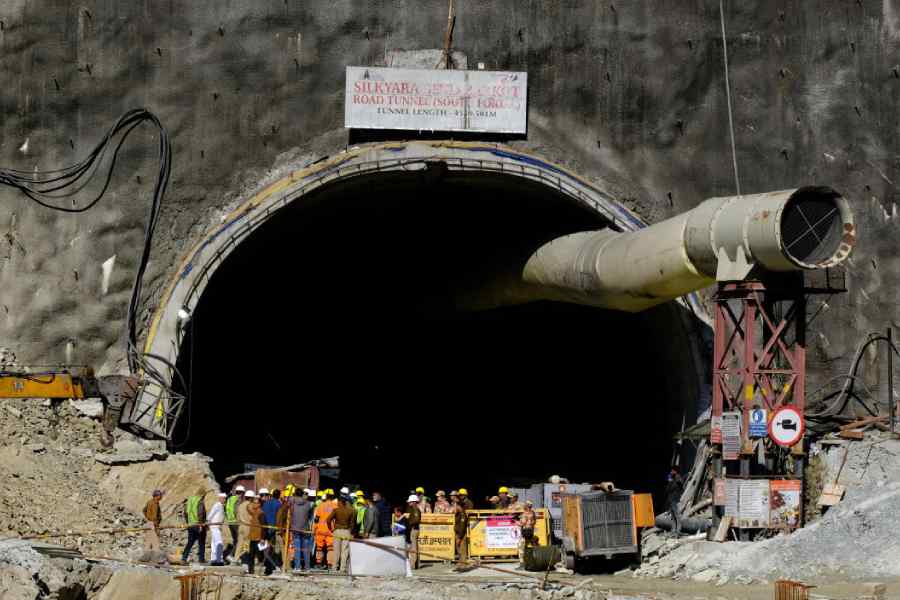The 41 workers trapped in a collapsed tunnel in Uttarkashi could be rescued within two or three days if ongoing efforts to drill through the debris succeed, but alternative routes might take a maximum of 15 days, government officials said on Tuesday.
The officials of the Union road transport and highways ministry and the National Disaster Management Authority also said a six-inch-wide pipe had been drilled to enhance the flow of food, water and medicines to the trapped workers.
The rescue efforts are underway at five sites. The main effort is focused on horizontal drilling using an auger machine. “The best possible effort is through the auger machine — if it succeeds, we can rescue them within two to three days,” said Anurag Jain, secretary in the road transport ministry. “But if hard rocks come, it may take time. Another effort is to create a side drill. It is internationally the most accepted method — it could take a maximum of 15 days,” he added.
A member of the National Disaster Management Authority (NDMA), Syed Atta Hasnain, said efforts to rescue the workers had been going on since November 12. Army engineers, the Indian Tibetan Border Police and the Border Roads Organisation have been engaged in the operation.
International experts have come voluntarily to help, Hasnain said.
There is ample space inside the tunnel, the officials said, and rations, medicines and water are being provided to those trapped.
Efforts are on from other sides as well, and also from the top. THDC has initiated the construction of a rescue tunnel from the Barkot end, with two blasts already completed, resulting in a 6.4-metre drift. Three blasts per day are planned.
Work is underway to create a drift inside the tunnel, with a safe channel established from 180 meters to 150 metres. The army is mobilising box culverts for this purpose. The Border Road Organisation (BRO) has constructed an approach road for vertical drilling within 48 hours.











